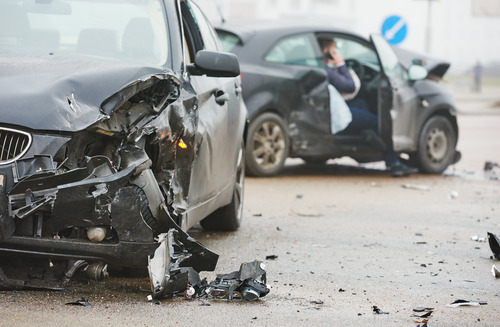- Car Accidents
At The Super Lawyer, we are dedicated to providing top-notch legal representation for those involved in car accidents. Our team of experienced attorneys understands the complexities of Georgia’s contributory negligence laws and is committed to fighting for your rights. We work tirelessly to ensure that you receive the compensation you deserve, guiding you through every step of the process with personalized, compassionate service.
Understanding Georgia’s contributory negligence law is essential for anyone involved in a personal injury claim, especially in cases like car accidents. This law determines how fault is allocated between parties and how it impacts the damages a plaintiff can recover. In Georgia, the contributory negligence law allows for partial recovery if the plaintiff is less than 51% at fault, but it also sets limits on compensation based on their level of responsibility.
In this blog, we will explore how contributory negligence law works in Georgia, focusing on their impact on car accident claims and the importance of working with an experienced Atlanta car accident attorney to navigate these complexities and maximize your recovery.
What is Contributory Negligence?
Contributory negligence is a legal concept that can affect a plaintiff’s ability to recover damages in a personal injury claim. It involves the plaintiff’s own actions or lack of actions contributing to the injury they suffered.
Definition of Contributory Negligence
Contributory negligence occurs when an injured person’s actions or failure to act contributes to the harm they experienced. In this situation, the plaintiff may be partially responsible for the accident. Under Georgia law, if a person’s fault is determined to be 50% or more in causing the accident, they are barred from recovering damages.
How It Affects Car Accident Claims
In a car accident case, contributory negligence might be argued if the injured person was partly to blame. For example, if the plaintiff was speeding or not following traffic signals, their actions could reduce their ability to recover damages. However, Georgia follows the contributory negligence law, meaning the plaintiff can still recover damages if their fault is less than 51%.
The Role of Fault in Contributory Negligence
Determining fault is central to contributory negligence. Georgia courts look at the fault attributable to the plaintiff’s actions compared to that of the defendant. If the plaintiff is found to have contributed to the accident, their compensation will be reduced based on their percentage of fault. This concept is applied under tort law and helps courts fairly allocate responsibility and damages recoverable.
Impact on Recovering Damages
Under Georgia’s contributory negligence law, the amount of damages a plaintiff can recover is reduced in proportion to their fault. If the plaintiff is found to be 40% responsible, for example, their damages recoverable would be reduced by 40%. However, if the plaintiff is found to be more than 50% at fault, they will not be entitled to recover any damages.
Georgia’s Contributory Negligence Law
Georgia uses a contributory negligence law (O.C.G.A. § 51-12-33) to determine how fault is shared in personal injury cases, including car accident claims. This rule helps decide the amount of damages a plaintiff can recover based on their level of responsibility for the incident.
The 51% Bar Rule
Under Georgia’s contributory negligence law, a plaintiff can only recover damages if they are less than 51% at fault for the accident. If the plaintiff’s fault exceeds 50%, they are barred from recovering any damages. This is known as the 51% bar rule. It ensures that plaintiffs who are significantly responsible for the accident cannot claim compensation.
How Fault Is Determined
To determine if the plaintiff is entitled to recover damages, the court will evaluate the fault attributable to each party involved. This includes assessing the defendant’s fault and comparing it to the plaintiff’s own negligence. The court or jury will allocate a percentage of fault to each party, and the plaintiff’s recovery will be reduced based on their own level of responsibility.
Impact on Car Accident Cases
In a car accident case, Georgia’s contributory negligence law means that even if the plaintiff shares some fault for the accident, they may still be able to recover damages. For example, if the plaintiff is found to be 30% at fault and the defendant 70%, the plaintiff’s recovery will be reduced by 30%. However, if the plaintiff is more than 50% at fault, they cannot recover damages.
Applying the Rule in Multi-Defendant Cases
In cases involving more than one defendant, Georgia’s rule still applies. Each defendant’s fault is assessed individually, and damages are divided based on their percentage of responsibility. If one defendant is found to be 40% at fault and the plaintiff 20%, the defendant would only be liable for 40% of the damages. This allows for a more accurate and fair distribution of liability and damages.
Exceptions to the Rule
While Georgia’s contributory negligence law is clear, there are some exceptions where a plaintiff may still recover even if their fault is close to or exceeds 50%. Certain circumstances, such as cases involving gross negligence or willful misconduct by the defendant, may allow the plaintiff to recover damages despite their own partial fault.
How Contributory Negligence Works in Practice
Contributory negligence law can have a significant impact on the outcome of a personal injury case. It involves determining how the plaintiff’s actions may have contributed to their injury and how that affects their ability to recover damages.
Assessing Fault in Personal Injury Cases
In a personal injury case, the court examines the actions of both the plaintiff and the defendant to determine fault. If the injured person is found to be partially responsible for the accident, this will influence the amount of damages they can recover. The court will look at the extent to which the plaintiff’s own negligence contributed to the accident and compare it with the defendant’s fault.
The Impact of Contributory Negligence in Car Accident Claims
In car accident cases, contributory negligence is often a factor in determining liability. For example, if the plaintiff was speeding or failed to signal while turning, their actions may be considered contributory negligence. Under Georgia’s contributory negligence law, the plaintiff can still recover damages as long as their fault is less than 51%. If their fault exceeds 50%, they will be barred from recovering damages.
Apportioning Fault Between Parties
When more than one party is involved in an accident, the court will assess how much fault is attributable to each party. This is especially relevant in cases with more than one defendant, such as a multi-vehicle crash. If the plaintiff is found to be partially at fault, their damages recoverable will be reduced based on their level of fault. This ensures that compensation reflects the true extent of each party’s responsibility.
Examples of Contributory Negligence in Action
In practice, contributory negligence law can be seen in various accident scenarios. For instance, if a pedestrian jaywalks and is hit by a car, their own negligence in crossing the street could reduce or eliminate their recovery, depending on the severity of their fault. Similarly, if a driver is rear-ended but was texting at the time of the crash, their failure to pay attention might contribute to the accident, affecting their ability to recover damages.
Legal Strategies in Contributory Negligence Cases
For a plaintiff to successfully recover damages in cases where contributory negligence is involved, their car accident lawyer must prove that the defendant’s negligence was the primary cause of the accident. Even if the plaintiff is partially at fault, the defendant’s negligence must still outweigh the plaintiff’s actions. Legal strategies may include presenting evidence that minimizes the plaintiff’s role in the accident and emphasizes the defendant’s liability.
Contact an Experienced Atlanta Car Accident Lawyer Today!
If you’ve been involved in a car accident and are concerned about how contributory negligence may affect your claim, don’t navigate this complex process alone. Reach out to our team at The Super Lawyer for legal guidance and support from experienced Atlanta car accident attorneys. We’ll help you understand your rights, determine fault, and work towards securing the compensation you deserve.
Contact us at 404-574-4308 for a free case consultation today!




